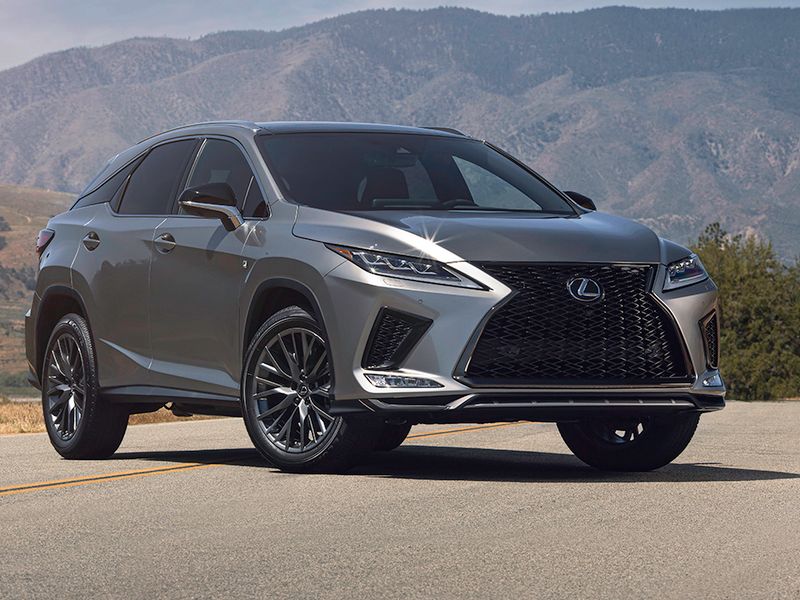
Toyota Motor Corp.’s Lexus brand outsold luxury rivals Mercedes-Benz and BMW in the latest quarter in the U.S. as inventory shortages triggered by the pandemic hampered the German brands.
Lexus, which hasn’t won the annual U.S. luxury sales race in a decade, grew 2 percent in the third quarter to 75,285 vehicles. Deliveries at Mercedes declined 9.4 percent to 69,631 units, and BMW suffered a 16 percent decline to 69,570. Mercedes is still leading the other two brands year-to-date by a wide margin.
Lexus has weathered the pandemic better than its German rivals, with the brand’s best-selling RX crossover seeing strong demand in the quarter. Both Mercedes and BMW have been hamstrung by tight inventory as the pandemic idled plants in Europe and the U.S. for weeks. Lexus saw a 31 percent jump in September alone, led by its RX, NX crossover and ES sedan. That pared declines this year to 13 percent.
“BMW used sales have been very strong — I think it’s eating the new car demand because of the inventory shortage,” said Marc Cohen, vice president at Priority 1 Automotive Group in Maryland, which operates two BMW stores.
Audi’s U.S. deliveries plunged 22 percent so far in 2020, following a 16 percent drop from July to September. Its top-selling Q5 crossover suffered a 34 percent decline in the quarter.
BMW dealers adapted by selling customers on vehicles that hadn’t yet arrived on the lot and with soaring sales of off-lease cars. After making do with tight inventory in July and August, BMW had a record month in September as its supply of vehicles was replenished, said Bernhard Kuhnt, president of BMW’s North America business.
“In September we had for the first time what I’d call better inventory levels,” Kuhnt said by phone. “For the rest of the year I’m cautiously optimistic, but definitely much more optimistic than I was in March.”
Lexus has edged out BMW for the No. 2 spot in year-to-date sales by 2,105 units, but Mercedes has sold a total of 196,838, a lead of nearly 15,000 vehicles over Lexus.
Tesla Inc. also is likely near the top of the U.S. luxury segment, but it doesn’t break out its U.S. sales in its quarterly disclosures. The Automotive News Data Center estimates Tesla sold 64,000 vehicles in the U.S. during the third quarter and 196,000 during the first three quarters.
While BMW’s ratio of crossovers to sedans climbed to 62.5 percent in the third quarter, led by the X3 crossover, Mercedes has a new compact crossover, the GLB, and other refreshed nameplates to tap Americans’ shift away from sedans to light trucks.
BMW has had to contend with other headwinds as well. Last month, the company agreed to pay the Securities and Exchange Commission $18 million to settle allegations it gave investors misleading information about retail sales. In August, the automaker trimmed its white-collar workforce in the U.S. to align costs with the plunge in sales.
The collapse of the rental-car market has also hurt results this year, so BMW has turned its focus to growing retail sales, Kuhnt said. “You will see in Q4, whatever that result will be, we grew our customer business,” he said.
Automotive News contributed to this report.